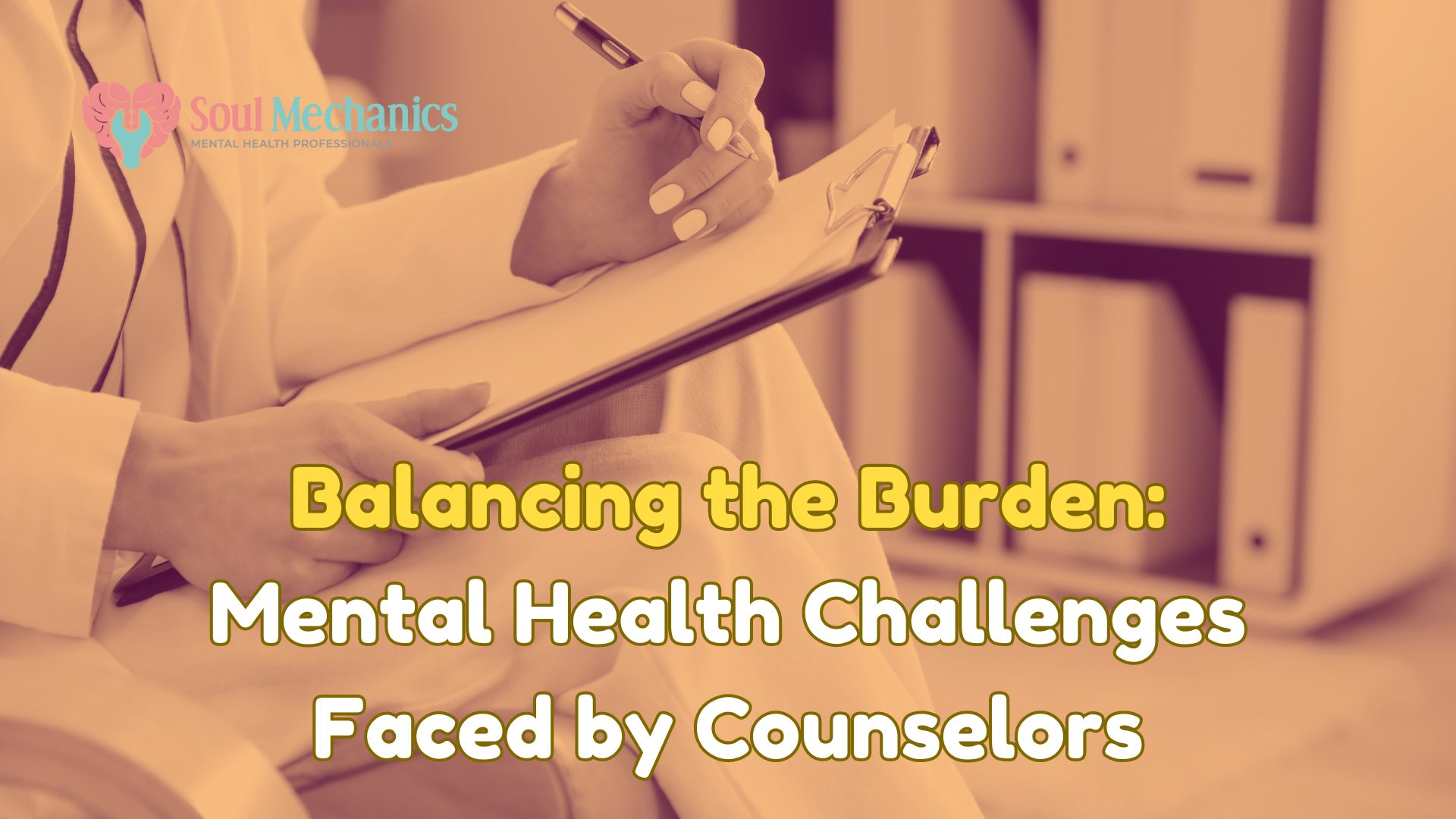Mental Health Challenges Faced by Counselors
Mental Health Challenges Faced by Counselors

Written By: Shaundtrya Ganasan, Licensed Counselor (KB11097)

Counselors provide essential guidance, support, and advice to individuals or groups facing personal, emotional, or psychological challenges. These trained professionals help people explore their feelings, thoughts, and behaviours, developing healthier coping mechanisms and improving their overall well-being. Specializing in areas such as marriage and family therapy, addiction counselling, career counselling, or mental health counselling, counsellors work in various settings, including schools, hospitals, private practices, and community organizations. Despite their crucial role, counsellors face significant mental health challenges of their own.
Reminder: If you or your loved one are struggling with mental health issues, please don't hesitate to reach out to us at Soul Mechanics KD or Soul Mechanics Ipoh.
Remember, seeking help is not a sign of weakness but strength!
Compassion Fatigue and Burnout
Regularly empathizing with clients' traumatic experiences can lead to compassion fatigue or burnout among counsellors.
Understanding Compassion Fatigue
Counsellors may experience emotional exhaustion from constantly caring for others, leading to decreased empathy and productivity.
Burnout Symptoms
Chronic workplace stress can manifest as physical, emotional, and mental exhaustion, reducing the effectiveness of counsellors.
Support Systems
Seeking support from colleagues or supervisors and participating in peer support groups can help mitigate these effects.
Secondary Trauma
Counsellors often encounter secondary trauma, which occurs when they are indirectly exposed to the trauma experienced by their clients.

Impact of Secondary Trauma
This exposure can lead to feelings of helplessness, sadness, or anxiety, affecting counsellors' mental health.
Reminder: If you or your loved one are struggling with mental health issues, please don't hesitate to reach out to us at Soul Mechanics KD or Soul Mechanics Ipoh.
Remember, seeking help is not a sign of weakness but strength!
Preventive Measures
Engaging in self-care activities, such as exercise, meditation, or hobbies, can help counsellors manage secondary trauma.
The Importance of Self-Care
Self-Care Strategies
Activities such as exercise, mindfulness practices, and pursuing hobbies help counsellors maintain their mental health.
Professional Support
Taking time for themselves and seeking support from colleagues or supervisors allows counsellors to process their own feelings and experiences.
Managing Heavy Caseloads
Balancing the needs of multiple clients can be a significant challenge for counsellors, leading to feelings of overwhelm and stress.
Organizational Strategies
Creating schedules, using technology tools to track client progress, and implementing prioritization techniques are essential for effective time management.
Setting Boundaries
Establishing clear boundaries and practising self-care are crucial to prevent burnout and maintain well-being.
Practicing Mindfulness
Mindfulness is essential for counsellors to support their clients effectively.

Benefits of Mindfulness
Practising mindfulness helps counsellors develop greater self-awareness and emotional regulation, allowing them better to manage their emotional responses during client sessions.
Creating a Safe Environment
By being emotionally regulated, counsellors can create a safe and calm environment for their clients, encouraging open communication and trust.
Organizational Support and Resources
Addressing the mental health needs of counsellors requires organizational support and resources.
Regular Supervision
Providing regular supervision and opportunities for counsellors to discuss their challenges and receive feedback is essential.
Training on Self-Care
Training on self-care techniques can help counsellors develop strategies to manage their mental health.
Access to Counseling Services
Ensuring counsellors have access to professional counselling services for their own support is crucial.
Supportive Work Environment
Creating a culture that promotes open communication and reduces stigma around seeking help contributes to the overall mental health of counsellors.
Conclusion

Mental health among counsellors is a crucial aspect that needs to be addressed. While counsellors play a significant role in supporting individuals with mental health issues, they also face their own challenges and need adequate support. By prioritizing the mental well-being of counsellors, organizations can ensure that these professionals remain effective and compassionate in their roles, ultimately benefiting the entire community.
If you’re looking for a therapist in Kota Damansara or Ipoh area, you can click here for more information.
If you enjoyed reading this, why not broaden the horizon of knowledge by learning about "Therapy; Ready for a Life-Changing Journey?"? You can read the blog here.
For more content related to mental health do follow us on our official Instagram.


